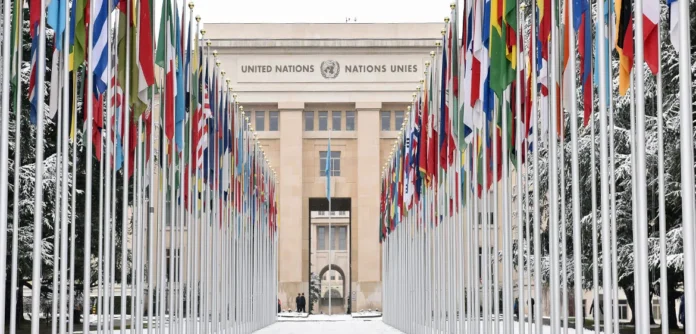Author: Milan Babic
Affiliation: The University of Amsterdam
Organization/Publisher: International Affairs
Date/Place: May 1, 2020/ UK
Type of Literature: Journal Article
Number of Pages: 20
Link: https://academic.oup.com/ia/article/96/3/767/5712430
Keywords: Antonio Gramsci, The liberal International Order (LIO), The Interregnum, Processuality, Organicity and Morbidity
Brief:
In his analysis of the current liberal international order crisis (LIO), Babic focuses on a “blind spot” in the current debate. The author considers the current “interregnum”, (the period of the power/throne vacuum), which is the period between the slow death of the existing order and the looming rising of the upcoming order, a crucial period that requires not only a description but also a multidimensional and trans-disciplinary analysis of its complex aspects; he proposes (and explores for the sources of organic diseases crises) using an arsenal of terms inspired by the Italian thinker Antonio Gramsci, mainly the processuality, organicity, and morbidity terms. All are terms which were used by Gramsci in his analysis of liberalism and the Italian state crisis during the period that witnessed the last major transition of world order in the 1920s and 1930s. Based on Gramsci’s way of thinking about the crisis, the author aims to extract an analytical framework and tools to help understand what happened to bring the liberal international order to its current crisis, applying this framework at three levels: the level of the global political economy (using the processuality term), the state-level (using the organicity term), and finally the socio-cultural level (using the morbidity term), arguing that this framework could help to overcome isolated analyses of the various dimensions of the crisis and achieve a more comprehensive empirical understanding and evaluation of it. Babic believes that this vacuum period is likely to extend for a longer time, as decades of instability and uncertainty may pass until a new stable balance will be found hegemonically. Meanwhile, important operations are being carried out (Brexit, the decline of the EU role, the erosion of the US administration and hegemony, the rise of China under a strong leadership …) which are all “events” that need to be better understood and analyzed rather than just looking at the past in order to reform the existing order, or looking to the future in order to anticipate the nature of the next order. In order to achieve this understanding, the author evokes the Gramscian term of processuality, as events and crises have a “history,” as they arise in contradictions or tensions within the dying old order created mainly by capitalism, which are long and multidimensional processes that can last for decades, and they can also develop their own “life.” The current crisis of the liberal international order is producing, in his view, new political facts that deserve analysis in itself. Concerning the organicity, the author distinguishes between “conjunctural and organic crises;” while the first appears in daily (national/global) political life, usually less substantial and not changing on its own, the second challenges the fundamentals of order, producing “morbid symptoms” which disrupt daily (national/global) political and economic life and that in the long run destroy the old order and its power relationships. The old actors of the liberal international order cannot solve its crises within the framework of this dying order, and this leads to a division between its supporters (the supporters of the existing order) and those actors who want to form part of this order. If these countries withdraw their support to the basic elements of the international order (such as economic openness, security cooperation, and its institutions), this will in turn lead to a crisis of throne/power vacuum on the international stage (this is what is happening now). This national-international divide constitutes the organic crisis of the liberal international order, whereby the old order loses its legitimacy, its supportive states do not offer a solution but instead orient themselves away from its basic elements. The third point relates to what Gramsci calls “morbid symptoms,” where: “The crisis consists precisely in the fact that the old is dying and the new cannot be born, in this interregnum a great variety of morbid symptoms appear,” which is the fruit of the dying order, showing that the current order suffers from existential problems that are unlikely to be solved within the limits of the old framework. At the same time, a new, rising, hegemonic, and stable order does not seem ready to replace the old, and thus the period of crisis is shaped by these diseases that cannot be managed and also does not represent a viable applicable alternative in the foreseeable future. In this regard, the author here works to systematically track the sources of these diseases within the changing dynamics of work at the societal level, trying to understand the motives of these diseases manifested in the gradual – passive and active- erosion of the values and attitudes that support the liberal international order. It is a multidisciplinary mission in different political, economic, societal, and cultural fields, as the author emphasizes here through several examples utilizing the three levels mentioned above, based on inspiration from the Gramscian way of thinking.
By: Djallel Khechib, CIGA Senior Research Associate




